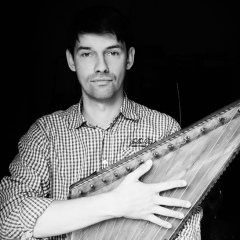1. С признанием себя грезящим и факта снов разума, сны разума ученика не исчезают, а грезы не рассеиваются.
2. Напротив, ученик с большой остротой и болью замечает, как они глубоки и как цепко, не ослабляя хватки, грезы держат его в оковах, не оставляя даже на мгновение.
3. Видя это, некоторые ученики смеются над собой, и, принимая свою судьбу грезящего существа, легко и уверенно идут по Пути.
4. Другие гневаются на сны разума, воспринимая грезы как вызов. Они решают принять этот вызов и сразиться с ними, чтобы победить или умереть.
5. Третьи приходят в большое отчаяние, такое, что у них, не переставая, из глаз текут слезы. Тогда, подбадривая ученика, Мастер говорит, что жизнь человека Пути радостна – это улыбка сквозь слезы.
6. Острое понимание своих грез, наполняющее болью и заставляющее содрогнуться до глубины души, есть верный признак того, что ученик реально начал освобождаться от снов разума.
7. Этот момент Мастера зовут «время великого сомнения», потому что ничто не остается прежним для того, кто понял, что он живет во сне, в бесконечном сне своего разума.
8. Во время великого сомнения ученик словно идет по безжизненной пустыне грез, и ничто больше не может дать ему утешения, чувства надежности и уюта.
9. Тогда из глубин души ученика возникает отчаянный, безысходный вопль о помощи к Мастеру и Беспредельному Духу.
10. Этот вопль так искренен и силен, что грезы приостанавливаются, а сны разума начинают дрожать, ослабляя свою хватку.
11. Тогда он впервые слышит отчетливый голос Беспредельного. Он исходит из его Духа, из той его точки, где нет грез, нет сомнений, нет разума чтобы видеть сны. Ему кажется, будто бы неуловимый голос, проникая в самое сердце, шепчет: «Не ищи реальность повсюду, лишь избавься от себя».
2. Напротив, ученик с большой остротой и болью замечает, как они глубоки и как цепко, не ослабляя хватки, грезы держат его в оковах, не оставляя даже на мгновение.
3. Видя это, некоторые ученики смеются над собой, и, принимая свою судьбу грезящего существа, легко и уверенно идут по Пути.
4. Другие гневаются на сны разума, воспринимая грезы как вызов. Они решают принять этот вызов и сразиться с ними, чтобы победить или умереть.
5. Третьи приходят в большое отчаяние, такое, что у них, не переставая, из глаз текут слезы. Тогда, подбадривая ученика, Мастер говорит, что жизнь человека Пути радостна – это улыбка сквозь слезы.
6. Острое понимание своих грез, наполняющее болью и заставляющее содрогнуться до глубины души, есть верный признак того, что ученик реально начал освобождаться от снов разума.
7. Этот момент Мастера зовут «время великого сомнения», потому что ничто не остается прежним для того, кто понял, что он живет во сне, в бесконечном сне своего разума.
8. Во время великого сомнения ученик словно идет по безжизненной пустыне грез, и ничто больше не может дать ему утешения, чувства надежности и уюта.
9. Тогда из глубин души ученика возникает отчаянный, безысходный вопль о помощи к Мастеру и Беспредельному Духу.
10. Этот вопль так искренен и силен, что грезы приостанавливаются, а сны разума начинают дрожать, ослабляя свою хватку.
11. Тогда он впервые слышит отчетливый голос Беспредельного. Он исходит из его Духа, из той его точки, где нет грез, нет сомнений, нет разума чтобы видеть сны. Ему кажется, будто бы неуловимый голос, проникая в самое сердце, шепчет: «Не ищи реальность повсюду, лишь избавься от себя».
1.With the recognition of oneself as dreamer and the fact of the dreams of the mind, the dreams of the disciple's mind do not disappear, and the dreams do not dissipate.
2. On the contrary, the student with great acuteness and pain notices how deep they are and how tenaciously, without loosening their grip, dreams hold him in chains, not leaving him even for a moment.
3. Seeing this, some disciples laugh at themselves, and, accepting their destiny as a dreaming being, easily and confidently walk the Path.
4. Others become angry at the dreams of the mind, seeing dreams as a challenge. They decide to accept this challenge and fight them in order to win or die.
5. Still others are in great despair, such that tears keep flowing from their eyes. Then, encouraging the disciple, the Master says that the life of a person on the Path is joyful - it is a smile through tears.
6. A keen understanding of one's dreams, filling with pain and making one shudder to the depths of the soul, is a sure sign that the student has really begun to free himself from the dreams of the mind.
7. This moment of the Master is called "the time of great doubt", because nothing remains the same for the one who has realized that he is living in a dream, in the endless sleep of his mind.
8. During a time of great doubt, the disciple seems to be walking through a lifeless desert of dreams, and nothing else can give him comfort, a sense of security and comfort.
9. Then from the depths of the disciple's soul a desperate, hopeless cry for help to the Master and the Infinite Spirit arises.
10. This cry is so sincere and strong that dreams pause, and dreams of the mind begin to tremble, loosening its grip.
11. Then he hears for the first time the distinct voice of the Infinite. It comes from his Spirit, from that point of his where there are no dreams, no doubts, no reason to dream. It seems to him that an elusive voice, penetrating into the very heart, whispers: "Do not look for reality everywhere, just get rid of yourself."
2. On the contrary, the student with great acuteness and pain notices how deep they are and how tenaciously, without loosening their grip, dreams hold him in chains, not leaving him even for a moment.
3. Seeing this, some disciples laugh at themselves, and, accepting their destiny as a dreaming being, easily and confidently walk the Path.
4. Others become angry at the dreams of the mind, seeing dreams as a challenge. They decide to accept this challenge and fight them in order to win or die.
5. Still others are in great despair, such that tears keep flowing from their eyes. Then, encouraging the disciple, the Master says that the life of a person on the Path is joyful - it is a smile through tears.
6. A keen understanding of one's dreams, filling with pain and making one shudder to the depths of the soul, is a sure sign that the student has really begun to free himself from the dreams of the mind.
7. This moment of the Master is called "the time of great doubt", because nothing remains the same for the one who has realized that he is living in a dream, in the endless sleep of his mind.
8. During a time of great doubt, the disciple seems to be walking through a lifeless desert of dreams, and nothing else can give him comfort, a sense of security and comfort.
9. Then from the depths of the disciple's soul a desperate, hopeless cry for help to the Master and the Infinite Spirit arises.
10. This cry is so sincere and strong that dreams pause, and dreams of the mind begin to tremble, loosening its grip.
11. Then he hears for the first time the distinct voice of the Infinite. It comes from his Spirit, from that point of his where there are no dreams, no doubts, no reason to dream. It seems to him that an elusive voice, penetrating into the very heart, whispers: "Do not look for reality everywhere, just get rid of yourself."
У записи 2 лайков,
0 репостов.
0 репостов.
Эту запись оставил(а) на своей стене Александра Воскресшая






















